This is the newsletter version of Sara by the Season, where I explore what is piquing my curiosity as I try to lean into nature’s wisdom and rhythms. You can listen to me read you the newsletter by hitting play above - or you can click the little link above and to the right to play in your favorite podcast player. If you know someone who would like this sort of thing, I’d be so grateful if you would share it.
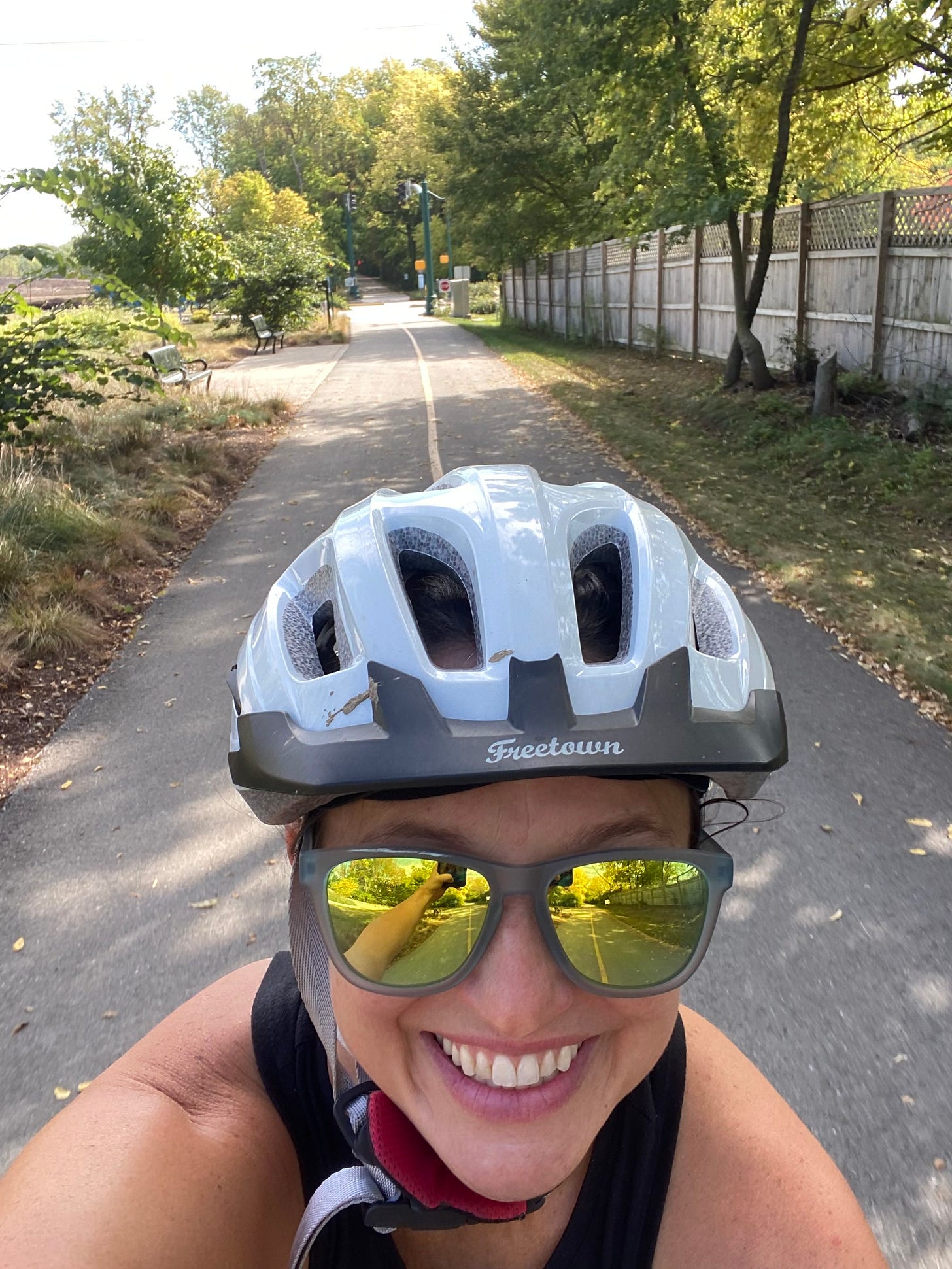
I’m not the first one (by a long shot) to notice how the self-care industry has taken a good idea - caring for ourselves - and commodified it. I’m mostly certain that there isn’t some council of old white men sitting around manipulating things so that capitalism keeps churning, but it does feel like, as soon as we more collectively start calling out the abuses of the system, that all of the sudden this new industry of self-care starts booming. Suffering from burnout? It certainly isn’t the lack of social safety net, lack of childcare funding, lack of healthcare, continually rising living expenses, your employer’s lack of family leave or paid time off policies; it must be because you personally aren’t taking enough bubble baths or doing enough yoga.
If I did think there was a council of old white men orchestrating things, they would have played this one perfectly: Get people obsessed with their own self-care practices, so that they don’t have time to think about systemic racism, sexism, workaholism, astronomical CEO pay, the destruction of the planet led largely by a handful of corporations. Instead of directing our burnout, anger, and frustration with the systems, we blame ourselves for not sticking to a workout routine or not meditating enough.
I tried a little experiment last week. I don’t work my day job on Thursdays, so I tried to do all of the things the wellness bros, lifehackers, and self-care pushers tell you to do: get plenty of the right kind of sleep, light first thing, move, lift heavy stuff, get lots of steps, meditate, eat enough protein, pursue your purpose, have a gratitude practice, etc. Here’s how my day went, roughly:
Huberman doesn’t have a partner or kids, so I’m assuming he can pop right out of bed and do these things he’s telling the rest of us to do everyday1. But it took me nearly four hours of “self-care” to even cross off a few of the things the wellness bros are telling us to do everyday! There is zero possibility that I could do even half of these things on a normal work day, and I’m someone with a flexible job and in an equitable partnership.
According to plenty of research, chronic stress is the leading cause of death in the US. Workplace stress alone accounts for 120,000 deaths in the U.S. each year. We aren’t chronically stressed because we aren’t doing enough self-care; we are chronically stressed because the systems we’re living under don’t work for most of us. And instead of waking up to that fact, we’re stuck guiltily navel gazing about our quality of sleep or how we’re not getting enough sunlight in the morning. I count myself in this group for the record. The most marginalized among us aren’t navel gazing; they are suffering chronically from the stressors of these systems that keep them constantly hustling, constantly playing catch-up, constantly worrying.
It reminds me of the narrative around climate change. Somehow, the fossil fuel industry has us individuals trying to tackle climate change when in reality only 100 fossil fuel corporations are responsible for over 70 percent of global greenhouse gas emissions since we started keeping track of human-caused climate change. Similarly, instead of coming together collectively to address the systemic injustices causing our communal wide epidemics of chronic stress, burnout, anxiety, and depression, we find ourselves spending our days trying to lifehack our way out of these systems problems. This cycle keeps corporations off the hook, billionaires billionaire-ing, and government in the pockets of the corporations.
That is what is so promising about recent strikes. According to the Cornell ILR School of Labor Action, more than 200 strikes have occurred across the U.S. so far in 2023. Collective action works and is more popular than it’s been in a few generations. The writers’ strike ended last week with big victories for the writers. Also last week, President Biden went to Michigan to join the UAW picket line. During the UK’s “winter of discontent” of 1978, British journalist Andy McSmith wrote that it was “irrational not to strike, ” and I think the same is true today when you look at the pace of CEO pay to worker pay since the 1970s.
Not all of us are in jobs where collective action at the workplace makes sense2, and it isn’t that I think caring for ourselves is a bad idea by any stretch3. But I wish we would see clearly how the way self-care is sold to us as one more thing we have to add to our never-ending to-do lists in order to feel better only exacerbates the problem and keeps us mired in our own exhaustion, guilt, and self-absorption.
Psychiatrist Pooja Lakshmin, author of Real Self-Care: A Transformative Program for Redefining Wellness (Crystals, Cleanses, and Bubble Baths Not Included), calls this the “Goopification of self-care” in this excellent conversation with Tressie McMillan. Dr. Lakshmin suggests that we redefine self-care from the “Goopy” version we’ve been sold into something more holistic, values-based, and useful to our healing. To do so, she lays out the following framework:
My thesis is that instead of thinking of self-care as taking 15 minutes out of your day to meditate or go for a walk that we need to be thinking about self-care as something that is threaded through every single decision you make in your life — the small decisions and the big decisions. So it’s not a task to check off of your list. It’s actually something to embody…
And when you deconstruct these choices, the framework that I’m suggesting is that there’s these four pillars we can talk about — boundaries, compassion, values, power — when you deconstruct that, and you decide to make choices in your life based on your own values — not society’s values, not culture’s values — that that’s actually deeply subversive.
In their conversation, McMillan and Dr. Lakshmin go on to discuss the pillars in more detail, but I think the important consideration is that we learn to make choices based on our own values. Part of the work of growing up is figuring out what your values are, as opposed to the values imposed on you by culture, religion, your family of origin. This is hard work, and, when done well, requires frequent revisiting based on our season of life. Dr. Lakshmin rightly points out that this work is also deeply subversive to the systems of power because you can’t control people who truly know their own values, making this seemingly individual work more collective than it seems at first glance.
I just started reading Attuned: Practicing Interdependence to Heal Our Trauma--And Our World by Thomas Hübl, and in it, he references Fares Boustanji, who uses birds of prey to teach leadership skills, who says “to get in contact with the other, you have to get in contact with yourself.” If Boustanji’s proposition is true that what we do to connect with ourselves helps us better to connect to others - both the human and more-than-human world - then the truer kind of self-care that Dr. Lakshmin is talking about goes hand-in-hand with the collective action our times are hungry for.
She concludes the conversation acknowledging that our ideas of self-care and community care should be more of “a dance, where you’re constantly moving back and forth…as we’re always going back and forth between the individual and the social. And the two are always in this dance, where both are true. I think both are true — that the government is responsible for enacting top-down solutions. And individuals do have agency to make choices in their lives that can protect them and buffer them and also spur potential change.”
Like so many things, the response isn’t either/or, but both/and. We need a new kind of self-care (that probably looks more like the idea’s founders), and we need that individual healing that comes from true self-care to feed our collective healing.
Scattering Seeds
I’m always finding stuff that supports the thesis of the book I’m writing on the benefits of leaning into nature’s wisdom, as well as other things related to this newsletter’s topic that maybe didn’t fit into the actual newsletter, so I thought I could start sharing those links and things here with all of you in hopes of some of the seeds I share germinating into something beautiful at your place.
Beauty culture has become synonymous with “Goopy” self-care. Jessica Defino is my go-to source on all things beauty culture, and I really loved her interview with Fariha Róisín (author of Who Is Wellness For? An Examination of Wellness Culture and Who It Leaves Behind, which I highly recommend) that overlaps with the self-care conversation. In the interview when she’s talking about the navel-gazing variety of self-care, she says, “I think these are dark times because so many of us are choosing disassociation over true connection with oneself and others,” and I think she is spot-on about another part of the dynamic around the explosion of the “Goopy” self-care industry.
I first heard about Dr. Lakshmin via AHP, and this interview is an excellent continuation of this conversation. I especially loved this bit that plays off her idea of the dance above:
When you make choices differently, as one individual, you impact the systems that surround you — whether that’s your family system, your school, or your work-place. The debate about whether change has to first happen externally or internally is the wrong conversation. Both always happen together. To transform our outside world, a critical mass of us must transform our internal worlds. I don’t know of any leader — and by leader, I mean at the family level, workplace level, or social level — who came to that position without going through a powerful internal shift first. Internal versus external is a false dichotomy in my mind.
Some of my favorite real self-care practices are: yin yoga, journaling, taking a cool off walk when I’m mad, prioritizing rest, and letting myself off the hook. What are yours?
Here’s to rethinking self-care this season,
Sara
I’m using Huberman, et al. to cover all of the wellness bros with podcasts who are either single or have wives/personal assistants/huge platforms that make their advice to us normal folk annoying to put it as mildly as I possibly can. I had to quit listening to Huberman because his cluelessness got to me, so maybe I’m being too harsh since I haven’t listened in awhile.
Which is perhaps an idea for a future newsletter? What does collective action look like without unions? Or for women doing unpaid care work?

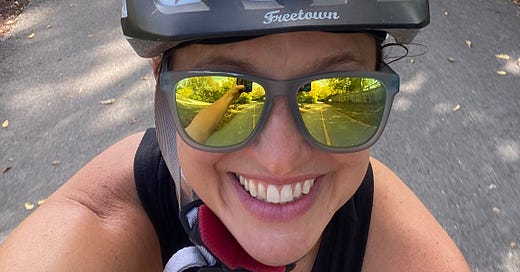


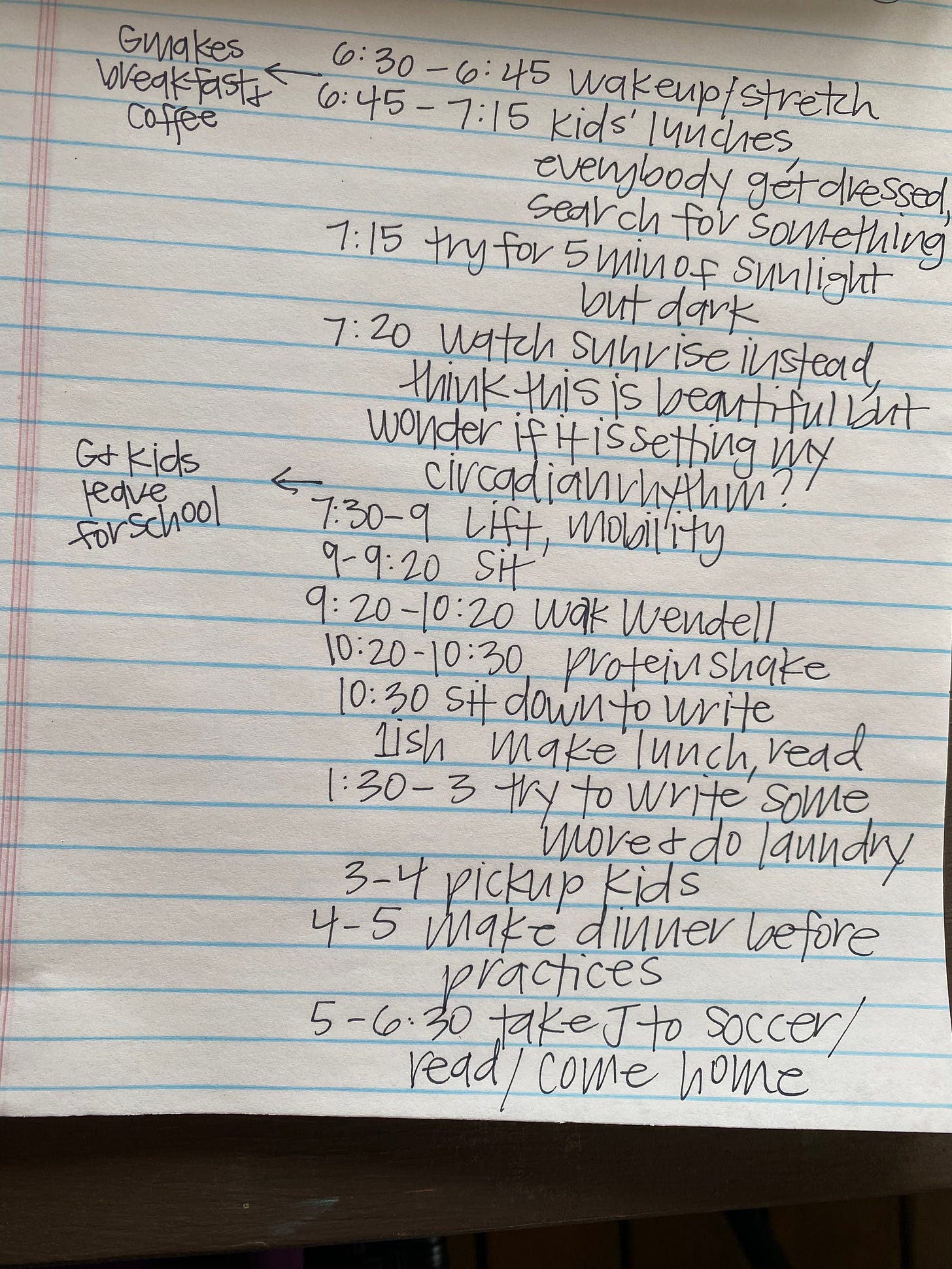

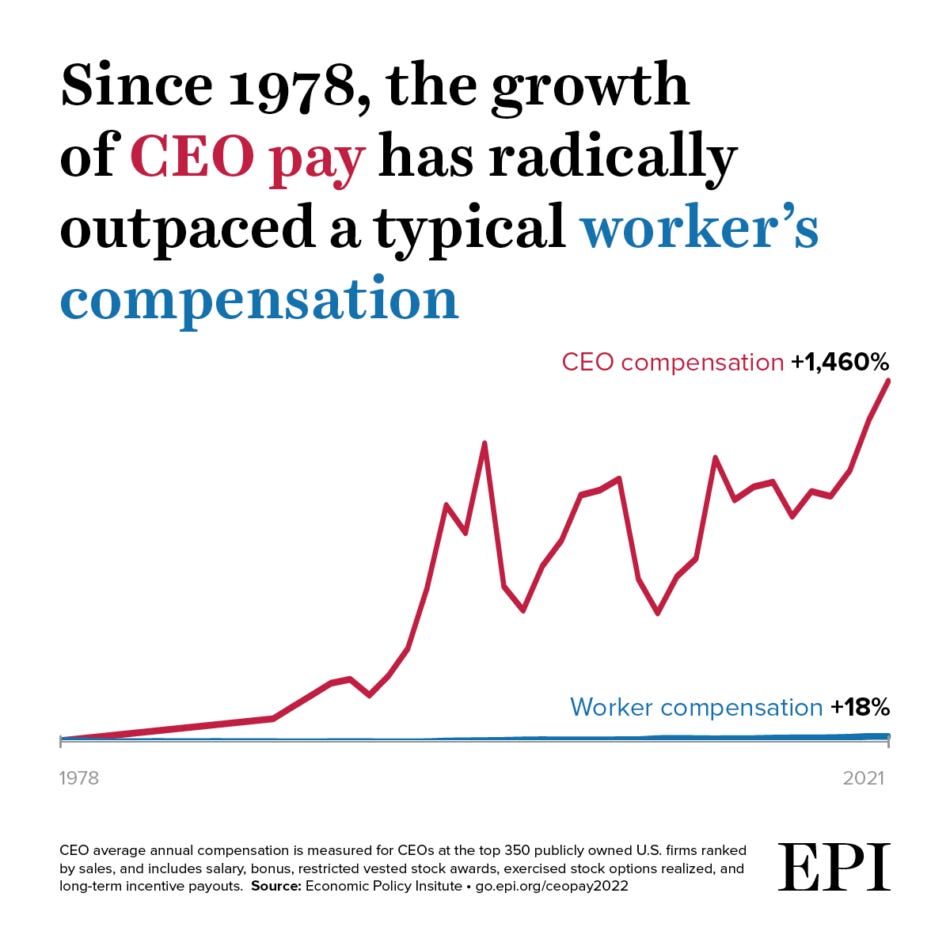

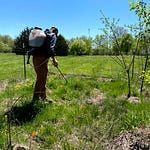







Share this post